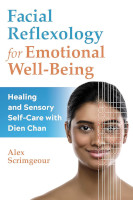In this Article:
- Howthe mind-body connection influences our response to stress.
- What role does neuroplasticity play in managing stress and trauma?
- How reframing stress can improve mental and physical well-being.
- What are the positive aspects of stress for building resilience?
- How consciousness plays a role in our understanding of stress and health.
Rewiring Your Brain with Right or Wrong Mindfulness
by Alex Scrimgeour.
There is a trinity of the brain, the body, and the environment. That is, the brain, the body, and the environment are intrinsically related. The brain cannot exist without a (wider) body, the (wider) body not without a brain, and the brain/body not without a material and social environment. . . .
The term “trauma” does not and cannot pertain to an event as such, because any event as an object is co-constituted by, co-dependent on, and co-occurrent with one or more experiencing and knowing individuals. -- Ellert Nijenhuis
The concept of stress is relatively new. In common parlance it refers to a mental-emotional distress that not only feels unpleasant but also has negative physiological consequences. There is a lack of specificity when using the word stress as it means different things to different people.
It can refer to a physiological stress to body tissues (like inflammation) or a psychological stress to one’s mind. This is regardless of whether one is talking about anxiety, depression, shame, or grief. This ambiguity often hinders practical solutions to counteracting stress.
The term stress was adapted from the field of Physics in the 1930s by the Hungarian endocrinologist Hans Selye and only entered general public awareness in relation to health in the 1950s. Selye’s research clearly linked stress to the development of many chronic diseases and poor health in general.
There is now an agreed consensus that stress plays a key role in many chronic illnesses. What is less understood is how to de-stress and how to correctly advise people in decreasing stress. Everyone is quite unique in this regard as an activity that is blissfully relaxing and de-stressing for one person can be torment and agony for another. Sress is relative—its nature changes according to our personal relationship with it.
Stress Is Not A Fixed Thing; It’s A Process
The ambiguity and confusion surrounding the word stress stems from framing it as a fixed thing rather than a complex and relational process. Useful as the term is, this misunderstanding leads people toward the same interpretation of their bodies and minds as fixed things rather than fluid, changeable processes. This inevitably confounds attempts to ameliorate stress.
Methods of improving our relationship with stress are in actuality methods of improving our mind-body relationship. However, consciousness remains largely an enigma to science, with fierce debate surrounding what constitutes mind and what constitutes body.
In the mainstream understanding there are many important unknown elements in the dynamic between the body and mind. Because of this, the concept of stress is potentially a way to avoid talking about how emotions and beliefs affect physical health, or to simply avoid talking about emotions at all.
This is similar to the way in which placebo is referred to in a derogatory way, when in fact it clearly demonstrates the therapeutic power of consciousness and the healing potential of belief and emotion. Reframing our experience of stress and, more fundamentally, the relationship between mind and body, could significantly improve our health and well-being.
Are Mind and Body Separate?
Whether or not we appreciate it, we have all been conditioned to think and behave as if our mind is somehow distinct from our body and that the physicality of the world is separate from the consciousness of the world. This conditioned understanding of separation is even implicit in the structure of our language and also leads to the tendency to frame the body and our sense of personhood as fixed and relatively unchanging objects.
Being objective is a high virtue in our culture. The dark side of this virtue is that it increases our tendency to objectify one another, which is a hallmark of the rigid intolerance and fundamentalism that has sadly defined the cultural history of the past few hundred years. Once our relational subjectivity is stripped away it makes it much easier to strip away someone’s personhood and humanity.
However, the very fact that we are conscious beings implies that a purely objective viewpoint is an impossibility. The scientific method depends on being as objective as possible so we can get the most truthful account of the world (or rather, the least false account). But if we take a clear-eyed view of ourselves, it becomes apparent that our feelings of well-being or stress are a distinct blend of physicality and consciousness. And so, the conundrum of consciousness is central to effectively addressing stress.
Do You Have A Solid and Unchanging View of Yourself?
We are constantly changing, our cells are always fizzing with new life, and our personhood is ever new. Why is it then that we have such solid and unchanging ideas of ourselves? In a nutshell, it’s a very useful survival mechanism to stake your place in the world. We have evolved to survive and to flourish, and forming an identity is a good first step toward survival.
However, many such evolved instincts also delude us to the greater truths of the world. This delusion would have you believe that your body will stay the same, as well as your sense of self. Like an illusion of immortality, our whole culture clings to youth and shuns the uncertainties of illness and death. These are not hot topics, but coming to terms with the transience of our lives will bring the concept of stress into sharp focus. Just like ourselves, stress is not an objective thing, it is fluid and changes according to our particular stance and perspective.
Overwhelemed and Held Captive by Your Emotions?
Although the term stress alludes to a rupture in our understanding of body and mind, it is nevertheless a useful word to summarize when we are overwhelmed and held captive by our emotions. Stress can simply be a word that summarizes the negative effect of emotion and subjective feelings. Although we can link both emotions and stress to processes within our neurochemistry, brain, heart, and breath, the attempt to pinpoint an exact definition of stress is as futile as trying to pinpoint an exact correlation between emotions and brain circuitry.
When stress is framed as a fixed thing it is commonly oversimplified as being an entirely bad thing. This in turn frames being in fight-or-flight mode as unhealthy, as something that leads to adrenal fatigue and burnout. Useful as these metaphors are, stress cannot be simplified as a purely hormonal release of cortisol, and the phenomenon of burnout cannot be simplified as just an imbalance in our adrenaline levels. If this were so then just waking up in the morning would be considered stressful, or any demanding physical activity would be termed stressful.
There are incredibly complex chains of interweaving psychobiological processes that interplay in the experience of stress. The nervous system, endocrine system, and cardiovascular system are all at the forefront of this, though there are many other influencing factors at play, including our childhood development, immune system, microbiome, and diet, as well as our genetic makeup and ancestral heritage, and even our social orientation and architectural environment. All these factors play a part in determining what type of relationship we have with stress.
Stress Has Positive and Essential Aspects
There are aspects of stress that are positive and essential for living a healthy and fulfilled life. With gradual exposure to stressful situations, we become accustomed and normalized to them, which can develop our natural resilience. What is key here is the word gradual.
Time is a critical factor in our relationship with stress. When mildly stressful situations come in short bursts and have a defined finishing point, our bodies can then self-regulate and integrate our experience, which can have a very positive and stimulating effect on our health, immune system, and overall resiliency.
A good example of this is the use of regular cold showers or cold-water swimming. When gradually brought into one’s lifestyle these can have a positive effect on the immune system and general health, but if one were to simply jump into icy water without any preparation, the effect would be potentially life threatening.
When we have a clear sense of the timeframe a stressful situation will last, this makes it much easier to withstand. But when stressful situations are drawn out over a long period of time and there is no endpoint in sight, our bodies and minds get overwhelmed and burned out, which can cause ill health.
As you can imagine, the complexity of life is such that we all have an array of stressful situations that are simultaneously playing themselves out over unknown time spans. The ability of the mind to create a space between what is happening now and what might happen in the future is an important skill in fashioning a truthful perception of our situation. As the great psychologist Viktor Frankl says,
“Between stimulus and response there is a space. In that space is our power to choose our response. In our response lies our growth and our freedom.”
Rewiring Our Brain: Neuroplasticity
Being mindful of the present moment is at the crux of a great majority of stress-management techniques. One reason for this is that the ability to finely focus our attention literally rewires our brain. So, when we can stay calm and present in each passing moment, even amid an unfolding crisis, this will re-pattern our brain and neurochemistry in real time so that our relationship with the crisis changes from being overwhelmingly stressful to simply challenging.
As the saying goes, when it comes to the synaptic firing of brain activity, “what fires together wires together.” This capacity to change our brain (and in fact our embodied experience) is called neuroplasticity. Although it tends to slow down after the age of twelve, research has shown that plasticity particularly occurs under three circumstances:
1. Shock—sudden and impactful experience
2. Novelty—new and interesting stimuli
3. Concentration—with the quality of paying close attention
This is both a saving grace and a double-edged sword, for negative thinking patterns also employ neuroplasticity. They can take up a lot of our attention, and so when a line of thinking becomes ingrained, it becomes much easier, and even addictive, to fall back on. The feeling of normalcy brings a sense of assurance and even comfort, even if it’s associated with a line of thinking that’s tinged with anxiety or anger.
The mindfulness revolution has resulted in an explosion in the popularity of mindfulness techniques, but it is vitally lacking the nuance and context from which the word originates. Mindfulness is not a magic bullet, and in the case of people who have experienced violent trauma, mindfulness meditation has the potential to exacerbate symptoms of PTSD.
Right Mindfulness and Wrong Mindfulness
The original Buddhist framework details specific actions that mindfulness plays in our consciousness. In the religious texts we have a clear description of right mindfulness and wrong mindfulness; hence, there was knowledge of the double-edged sword that mindfulness and neuroplasticity can represent.
Right mindfulness rests on a foundation of virtue, which at its basis is the cultivation of self-restraint and nonviolence in words, thoughts, and deeds. If a man is wholly fixated on killing someone, he can at the same time exemplify strong mindfulness and awareness of his intent. Even though he may develop strong mindfulness with his murderous intent, the end result won’t lead to happiness or peace of mind—quite the opposite.
Unfortunately, some forms of trauma can leave such an imprint on the mind that they can undermine our attempts to establish right mindfulness. It is very important not to judge or blame, for when we or others feel broken by stress and trauma or for when mindfulness techniques are difficult to engage with, as it is more challenging and complex than is often realized.
Confusion About The Nature of Consciousness
What we are seeing is a mismatch of language and culture that belies a confusion about the nature of consciousness itself. Mindfulness is simple and at the same time infinitely complex.
Whereas in the West we assume that consciousness is bound within the brain and disconnected from everything outside of the skull, in the East consciousness has traditionally been understood as a process that unifies and connects the world. It is seen like an empty field in which everything and everyone is embedded. This naturally leads to framing ourselves and life as bound by relationship rather than through a lens of division and separation. The process philosophy of Alfred Whitehead echoes this intuition, that our mind and body fundamentally exist as processes—not as things.
When we appreciate the ever-changing processional nature of self and world, this changes our values and places greater meaning on the relationship between two things rather than the things in and of themselves.
Copyright ©2023. All Rights Reserved.
Adapted with permission of the publisher,
Healing Arts Press, an impint of Inner Traditions Intl.
Article Source:
Facial Reflexology for Emotional Well-Being
Facial Reflexology for Emotional Well-Being: Healing and Sensory Self-Care with Dien Chan
by Alex Scrimgeour. The Vietnamese facial reflexology practice of Dien Chan offers simple touch and massage techniques that engage the reflexology points of the face to help you tap in to the innate healing and regenerative powers of the body. Taking the practice further, master practitioner Alex Scrimgeour shows how to integrate Dien Chan with qigong and Chinese medicine as well as recent developments in neuroscience and cognitive science to treat a variety of emotional issues, from anxiety, addiction, and stress to trauma, dissociation, and PTSD.
The Vietnamese facial reflexology practice of Dien Chan offers simple touch and massage techniques that engage the reflexology points of the face to help you tap in to the innate healing and regenerative powers of the body. Taking the practice further, master practitioner Alex Scrimgeour shows how to integrate Dien Chan with qigong and Chinese medicine as well as recent developments in neuroscience and cognitive science to treat a variety of emotional issues, from anxiety, addiction, and stress to trauma, dissociation, and PTSD.
Click here for more info and/or to order this paperback book. Also available as a Kindle edition.
About the Author
Article Recap:
This article delves into the mind-body connection and its critical role in managing stress. It explores how stress affects neuroplasticity, the brain’s ability to rewire itself, and how this influences both mental and physical health. By reframing stress as a process rather than a fixed state, individuals can improve their relationship with stress and foster resilience. The article also discusses the importance of right mindfulness, neuroplasticity, and the need to view health as a dynamic, relational process rather than a set of fixed conditions.




 Alex Scrimgeour is a licensed acupuncturist and massage therapist, with a degree in acupuncture and a diploma in Tui-Na massage from the College of Integrated Chinese Medicine. He has studied Dien Chan (Vietnamese facial reflexology) extensively with Trần Dũng Thắng, Bùi Minh Trí, and other master clinicians at the Việt Y Ðạo Center in Vietnam. He gives treatments and teaches at many of the leading spas and wellness centers around the world and is based in London. Author's Website:
Alex Scrimgeour is a licensed acupuncturist and massage therapist, with a degree in acupuncture and a diploma in Tui-Na massage from the College of Integrated Chinese Medicine. He has studied Dien Chan (Vietnamese facial reflexology) extensively with Trần Dũng Thắng, Bùi Minh Trí, and other master clinicians at the Việt Y Ðạo Center in Vietnam. He gives treatments and teaches at many of the leading spas and wellness centers around the world and is based in London. Author's Website: 























